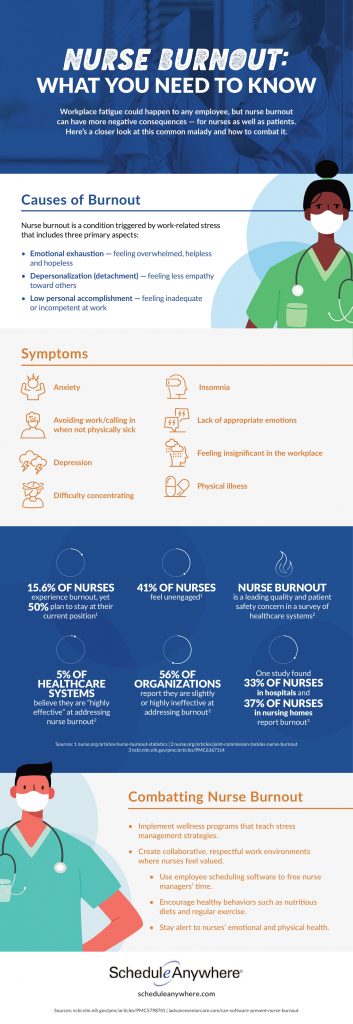Do you commonly feel overwhelmed or exhausted at work? You’re not the only one. A recent poll of more than 7,500 full-time employees indicated that 23% of those employees frequently experience some form of burnout. A separate 44% reported that they feel an occasional sense of burnout from their work.
This sort of feeling is common in positions that require a great deal of mastery and understanding, which is why it isn’t very surprising that so many medical professionals experience burnout.
But what can actually be described as employee burnout? Most commonly, burnout is a condition that is a result of large amounts of work-related stress which then in turn causes a decrease in emotional, physical, and psychological energy. This can lead to a number of negative effects, specifically in medical professionals. If these professionals experience burnout, the quality of care that is provided to patients isn’t to the standard that it should be.
How can you tell if a medical professional is experiencing burnout? Here are a few tells:
Emotional fatigue: this is one of the more common trends in employee burnout. Individuals will feel overwhelmed by the stress of their work, which in turn has an effect on the mood of the individual. Feelings of depression, helplessness, hopelessness, and a physical weariness are common.
Depersonalization: this is typically described as a detachment of one’s self, where individuals may find themselves less empathetic toward their cohorts, or in the case of medical professionals, their patients.
Decreased sense of accomplishment: or a feeling of inadequacy in an individual’s profession. This often has an effect on the effort that employees are willing to expend in order to get the job done. While medical professionals should always strive to provide the most expert level of care, this may not be possible if they were feeling this sense of incompetency.
Knowing that this feeling of burnout is so common amongst medical professionals, what becomes most important are the strategies put in place to combat the feeling. Below are a few that have had great success in the healthcare industry:
Wellness programs: often times programs like these provide strategies to nurses over the course of their workdays to reduce stress and allow for some time to themselves to recalibrate.
Healthy Work Environments: creating work environments where nurses feel respected and heard has a positive effect on nurse burnout. Being able to communicate openly with a superior about an issue and then finding a solution to the issue allows nurses to be valued at their workplace.
Scheduling Software: well-integrated scheduling tools allow for less time spent worrying on who’s showing up for the night and more time assuring that patients receive the care they need throughout their stay at a hospital.
Maintaining Healthy Behaviors: simple fixes like a nutritious diet, a full night’s sleep before reporting to work, exercising, and other stress management activities are encouraged for medical professionals as a way to fight off the likelihood of burnout.
Management Awareness: finally, it is important for those in management positions to keep an eye out on their employees. Despite potentially facing feelings of burnout themselves, it is important to pay close attention to employees and provide an environment where they feel comfortable communicating to their superiors regarding feelings of burnout.
For more information regarding Nurse Burnout, please review the accompanying infographic courtesy of ScheduleAnywhere.

You Can Also Read : What is Candidiasis? The Diagnosis And The Treatment































